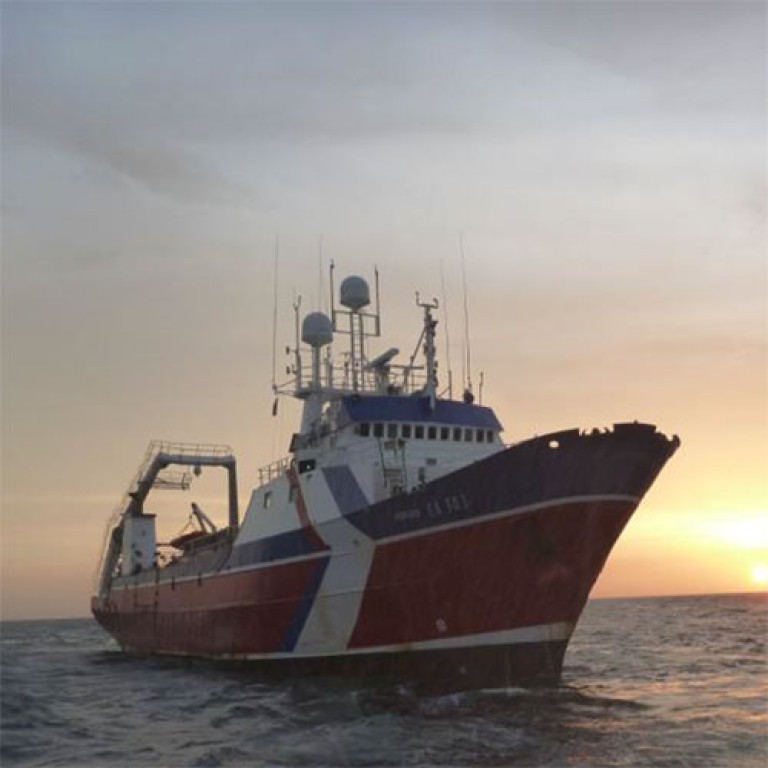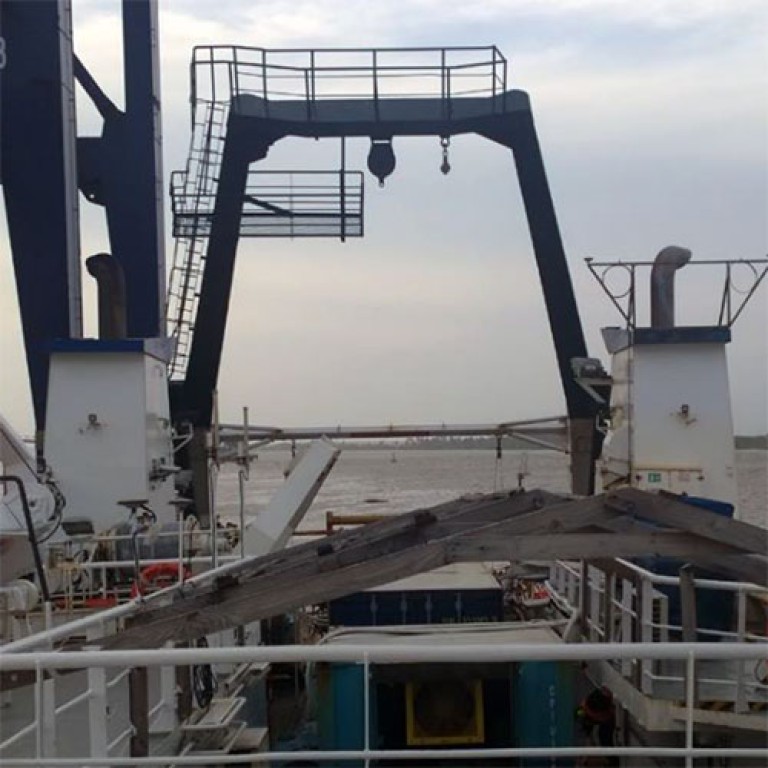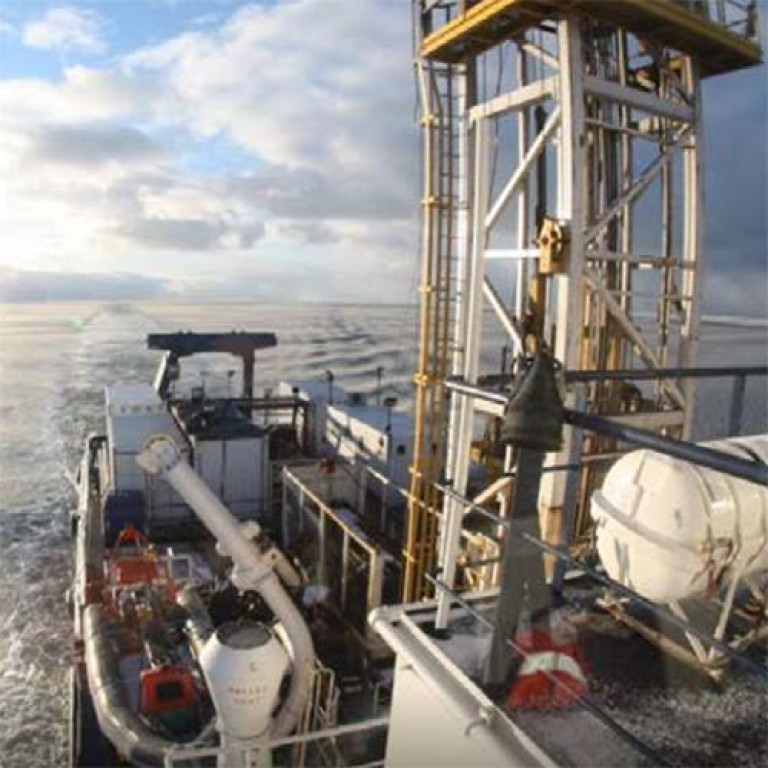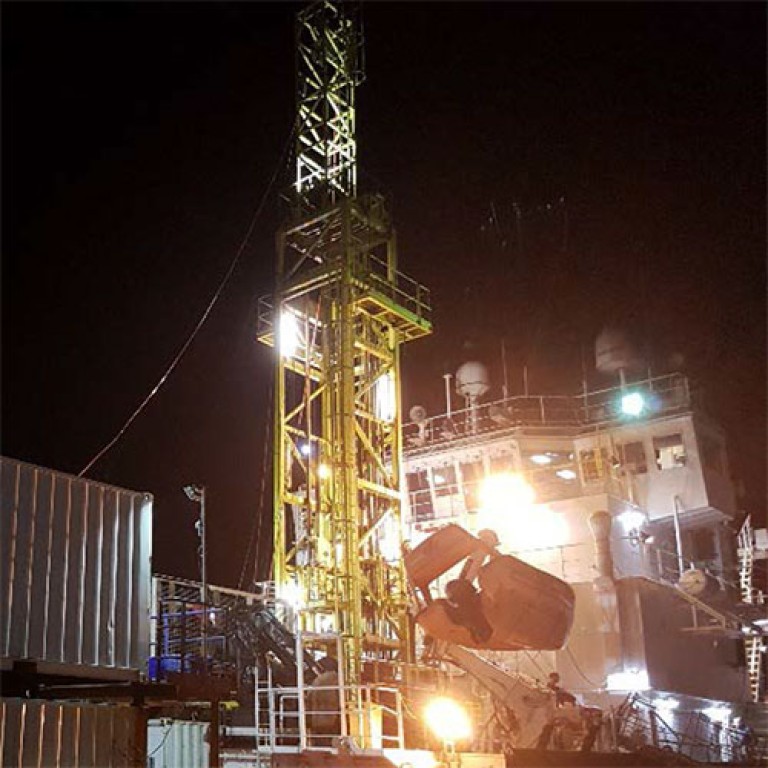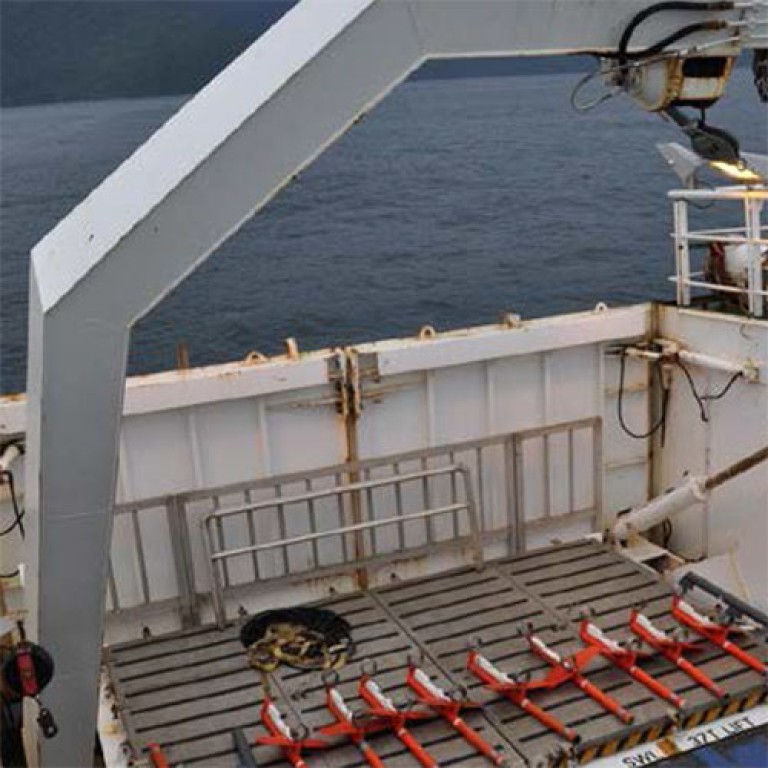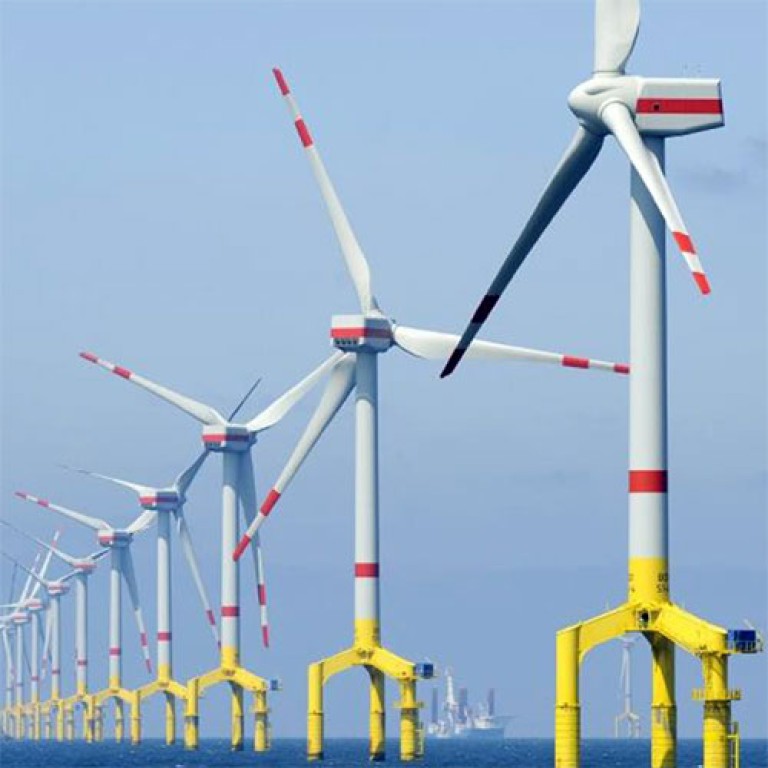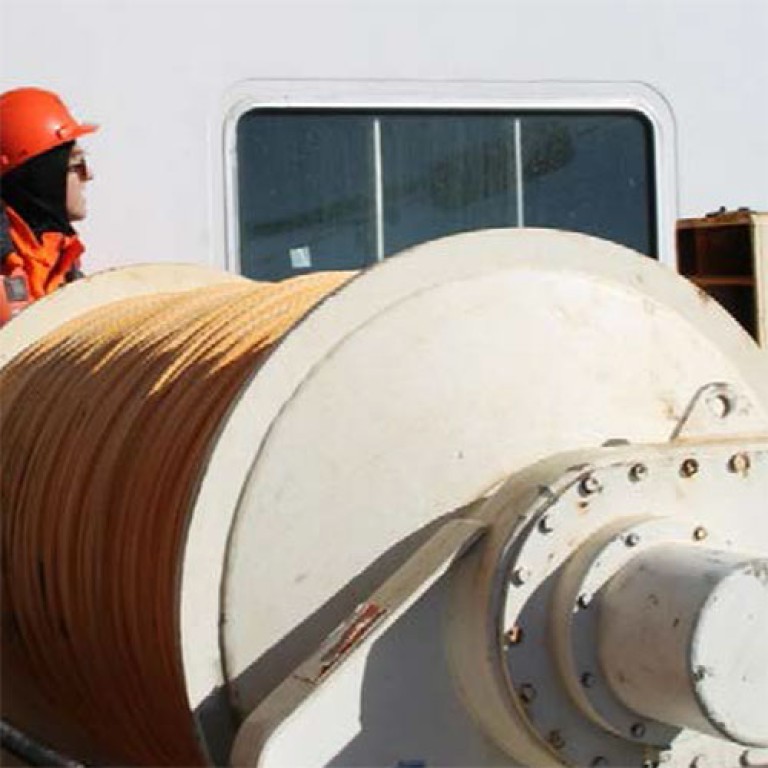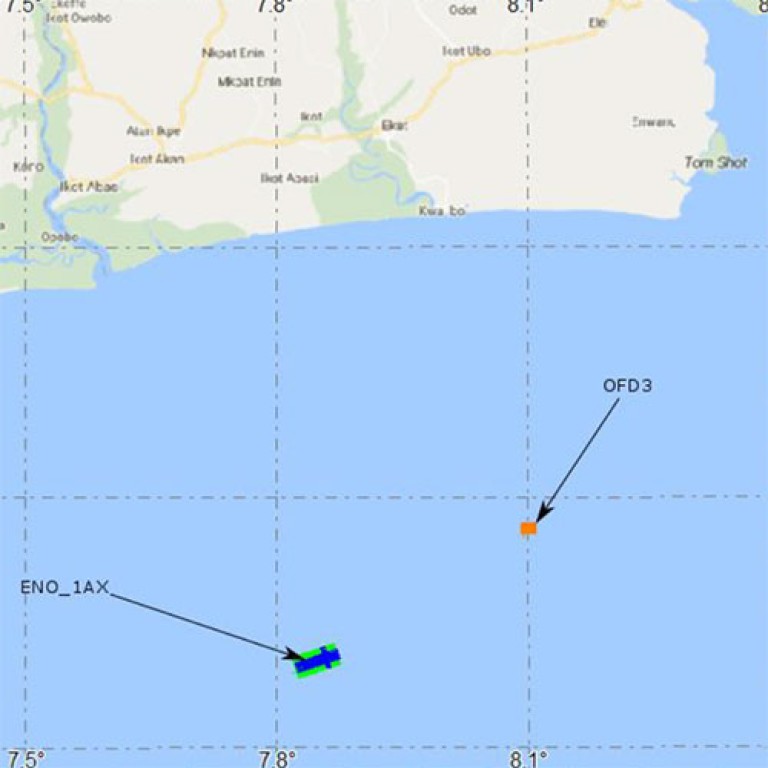Enviros provided the class II dynamically positioned vessel MV Ocean Spirit to perform operations in Cameroon, West Africa. The scopes of work comprised an integrated geophysical and geotechnical survey and investigation. Primary geotechnical data acquisition was performed through rotary drilling and wireline in situ testing techniques. The purpose of the geotechnical scope of work was to provide appropriate data to allow interpretation of engineering parameters for jack-up rig spudcan penetration analyses, piled platform design and anchor cluster sites for a floating liquidified Natural Gas (FLNG) facility. Water depths ranged from 50m to 60m. Shallow gas hazard site surveys were performed prior to commencing drilling, sampling and in situ testing operations.
Twelve geotechnical boreholes up to 60m depth were successfully completed with procedures for drilling in regions of shallow gas. All recovered samples were uniquely identified, photographed and described prior the performance of appropriate testing in the dedicated laboratory onboard. Enviros geotechnical engineers provided New Age with ‘realtime’ jack-up spudcan penetration analyses onboard MV Ocean Spirit to enable the optimisation of final borehole depth and overall efficiency in operations.
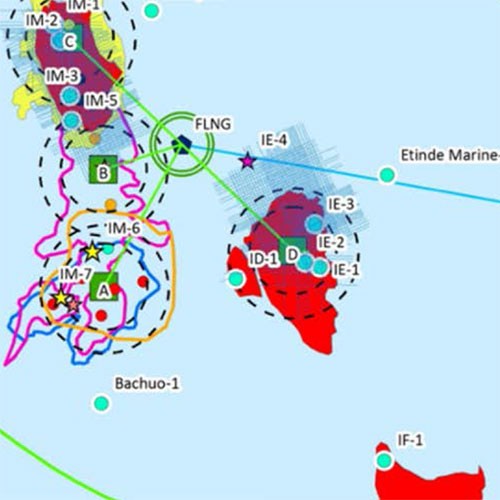
Project Organisation
Enviros provided technical assistance and expertise during all pre-mobilisation, mobilisation, fieldwork, demobilisation and associated onshore laboratory testing and reporting. The Project Manager appointed an experienced Offshore Project Manager for all fieldwork operations.
The Project Manager had the role of managing day-to-day issues relating to the project, based onshore in the local Russian office. The Offshore Project Manager was responsible to ensuring that the project was completed in accordance with Enviros procedures and to Client specifications. Responsibilities include, but not limited to being the immediate point of contact for any Offshore Client Representatives, ensuring project QHSSE procedures are adhered to during all offshore operations; this is to include mobilisation, field calibrations and checks, project tasks, post project calibration checks and demobilisation; and the production or approval of all necessary field reporting.
